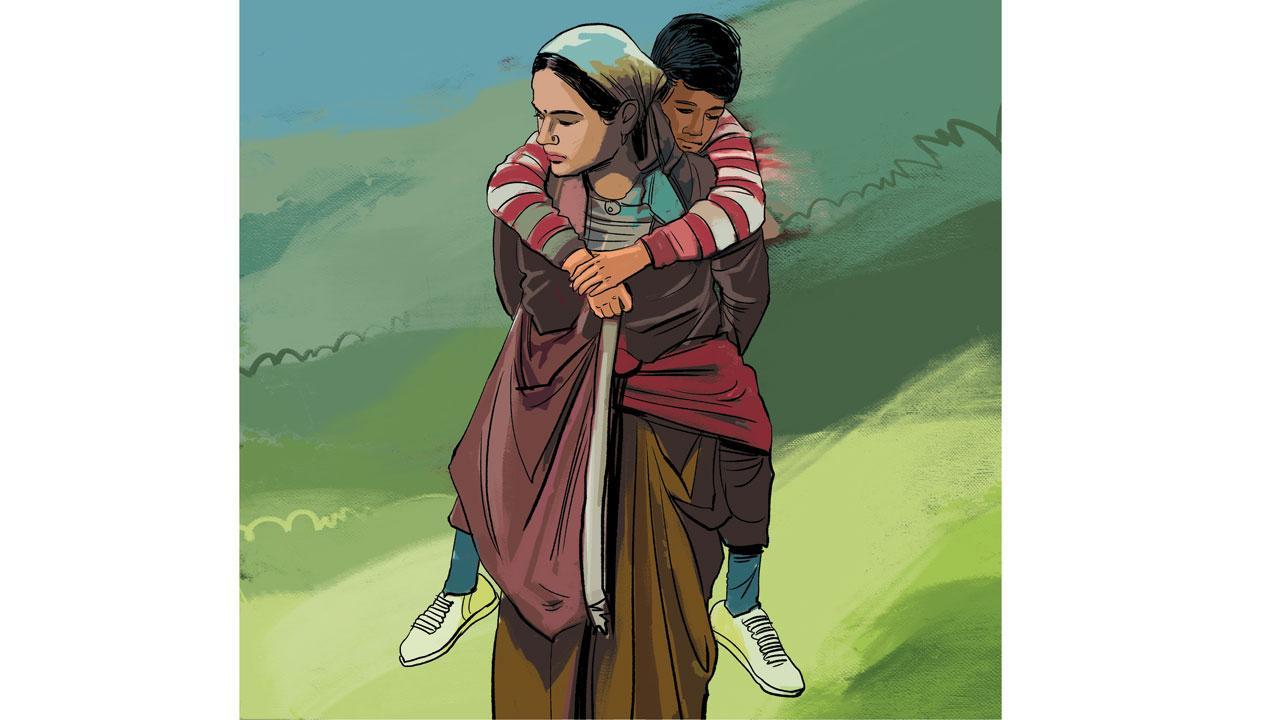It doesn’t get more glocal than this.

Illustration/Uday Mohite
Ajitpal Singh’s Fire in the Mountains that recently played at the Sundance Film Festival, is a strong, sensitively drawn debut feature. A powerfully feminist film, it played in the World Cinema Dramatic Competition section. Rintu Thomas and Sushmit Ghosh’s debut documentary Writing with Fire, on the quietly courageous, all-Dalit-women-run newspaper Khabar Lahariya (News Waves), in UP, won two World Cinema Documentary Awards at Sundance—the Special Jury Award for Impact for Change and Audience Award. Singh’s earlier short Rammat-Gammat (My Best Friend’s Shoes) won a Special Mention from the Children’s Jury at Oberhausen in 2018. He was Associate Director on Shanker Raman’s Gurgaon, and dialogue writer for Kanwal Sethi’s Indo-German co-production Once Again.
ADVERTISEMENT
Fire in the Mountains is essentially about the clash between modernity and tradition, set in the picturesque Himalayas in Uttarakhand. It opens with Chandra (Vinamrata Rai), enticing tourists to her homestay “Swizerland” (no ‘t’), quietly fobbing off other aggressive touts, and effortlessly carrying the family’s heavy suitcases uphill. Chandra also carries the burden of raising the entire family alone and with a smile—her good-for-nothing husband Dharam (Chandan Bisht), a physically-challenged son Prakash who cannot walk, and daughter Kanchan. She keeps the homestay going, cuts grass, does the cooking, laboriously takes her son up and down the hill daily on her back, for treatment and school. As Chandra struggles to save money, and chases various people to cure Prakash, as well as to build a road past their home, that would make life so much easier, she is exploited by various men. Her boorish husband is furious when she pays for medical treatment to cure Prakash; he wants to invest her savings in a jagar, a religious ritual, instead.
Most of the men are pretty awful, including Dharam. The doctor treating Prakash threatens to cut off his leg. The village chief is a drunken lech. Chandra’s teenage daughter Kanchan is discovering her sexuality, putting out provocative videos on “Tuk Tuk” and having an affair with Neeraj, the chief’s wayward son. On top of it all, there’s a leopard on the prowl. Finally, Chandra loses her cool in a dramatic climax referencing the title, yet shows she’s wily enough to play Dharam’s game too. The film also exposes village hypocrisy and how men and boys routinely exploit women and girls. It was inspired by a real-life tragedy, as Singh’s sick cousin passed away after her husband didn’t take her to hospital, thinking she was possessed by a ghost.
Singh’s direction is assured; his characters are drawn in meticulous strokes. He is comfortably feminist: Chandra is hardworking, rational and compassionate. He also has a fine eye for the lives of rural and indigenous people, as is evident from both, Fire in the Mountains and Rammat Gammat. Rai is wonderfully convincing as Chandra in her debut feature; Bisht is good too. The screenplay by Singh is strong and fleshed out, even as it leaves a few key questions, including about the boy’s disability, unexplained. To his credit, he has more of an observational, than a judgemental tone, especially concerning Dharam. Dominique Colin’s cinematography is superb (he also shot Rohena Gera’s Sir); Parikshhit Jha and Simon Price’s editing is effective, and Mohandas VP’s sound design is evocative. The film is produced by Jar Pictures—Alan McAlex and Ajay Rai—with co-producers Mauli Singh and Amit Mehta. You’ve got to hand it to Singh’s gumption to assemble the international crew, given that this is an Indian film and not an international co-production, including the French Colin, New Zealander Price (whom he met in New Zealand), South African music composer Arnaud van Vliet (whom he met in Oberhausen). It doesn’t get more glocal than this. Bravo!
Meenakshi Shedde is India and South Asia Delegate to the Berlin International Film Festival, National Award-winning critic, curator to festivals worldwide and journalist. Reach her at [email protected]
 Subscribe today by clicking the link and stay updated with the latest news!" Click here!
Subscribe today by clicking the link and stay updated with the latest news!" Click here!






